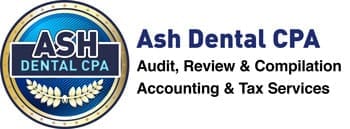Dental Bookkeeping Massachusetts: What is Bookkeeping for Dentists?

Dental Bookkeeping Massachusetts
Dental Bookkeeping Massachusetts | Bookkeeping organizes the accounting records of your dental practice. You need to account for every penny that comes in or goes out of your dental practice’s accounts. Bookkeeping is the tool that maintains the records of every accounting transaction for your dental practice.
Dental Bookkeeping Massachusetts provides several benefits to any business. A dental practice can take advantage of professional bookkeeping services too. Moreover, one of the key benefits of outsourcing the bookkeeping function is to save time. You can focus on the core activity of your dental practice by saving time and money by outsourcing the bookkeeping function.
What is Dental Bookkeeping Massachusetts?
Bookkeeping is the process of recording, organizing, measuring, and presenting the accounting data of a business. For this reason, these records then become starting entries of financial statements. Thus, financial advisors can use the bookkeeping records to turn raw accounting data into useful financial information.
Bookkeeping for Dentists
Dental Bookkeeping Massachusetts would imply covering every accounting transaction related to the dental practice. These accounting transactions can range from income and expense entries, invoices, interest payments, payroll, tax returns, and so on.
Here are some of the key aspects of bookkeeping for dentists.
Segregated Accounting Records for your Dental Practice
Dental Bookkeeping Massachusetts is the organizer tool for your dental practice’s accounting records. You’ll get segregated accounts for your dental practice. It helps in maintaining organized account books of your business.
The setup of accounts is termed as charts of accounts. The broader categories of these accounts can be classified into:
- Assets
- Liabilities
- Income (Owner’s Equity)
- Expense
Each broader category can then be further divided into several sub-categories. Financial analysts can utilize this information to measure performance. You’ll be able to benchmark the performance metrics against historic results or industry performances. Thus, bookkeeping records can help you stay competitive and organized.
Separate Personal and Business Finances
If you are running the dental practice as a sole proprietor, you’ll need to separate your personal and business finances. It will be a complex task to comply with tax regulations without efficient record-keeping.
Separating personal and business financials can also reduce your tax liability. As personal and business income is taxed differently. You can consult a professional such as a dental CPA to choose the right entity structure for your dental practice. For instance, you can choose a corporation entity for your dental practice to reduce your business liability and tax burden. However, it would require several other legal complications.
Know the Numbers – Financial Analysis
Even if your dental practice is making a profit, you would want to know; is it sufficient. You cannot assess the efficiency of your dental practice’s resources without measuring them. Moreover, bookkeeping is the tool that allows us to know these metrics.
Dental Bookkeeping Massachusetts maintains accurate records of every financial transaction in your dental practice. Thus, you can utilize these records for performance appraisal. For instance, you can analyze the account receivables days from clients to know which clients have been continuously delaying payments.
Furthermore, bookkeeping also lets you figure your profits and cash flow. Your dental practice can be profitable but illiquid or can be generating sufficient cash but remain unprofitable.
Close-Out Process and Reconciliation of Accounts
Reconciliation of accounts is an integral part of the accounting cycle for any business. It helps you stay organized and remove any errors from financial records. In addition, it can help you control theft, fraud, or misconduct of controls.
A close-out process is the preparation of accounts for financial statements. It involves account reconciliations and summarizing. Journal entries from account books are summarized and carried over to the financial statements.
Reconciliation of accounting records would help you mitigate financial errors. You’ll get a true picture of your account books, hence the profitability of the dental practice at any given time. Dental Bookkeeping Massachusetts is the tool that generates these key accounting records.
Entries for Financial Statements
The preparation of financial statements is a key part of the accounting cycle for any business. Bookkeeping provides accurate figures for all financial statements including the balance sheet, income statement, and cash flow statement.
Moreover, financial statements provide a summary of the financial position of your dental practice at any given time. For instance, the balance sheet depicts how much your practice owns and how much it owes to others. A cash flow statement provides the track of cash moving in and out of your dental practice. Therefore, accurate Dental Bookkeeping Massachusetts records mean accurate financial statements for your dental practice.
Learn more about Dental Bookkeeping Massachusetts with Ash Dental CPA. Call (508) 458-6789 or request a call here.
